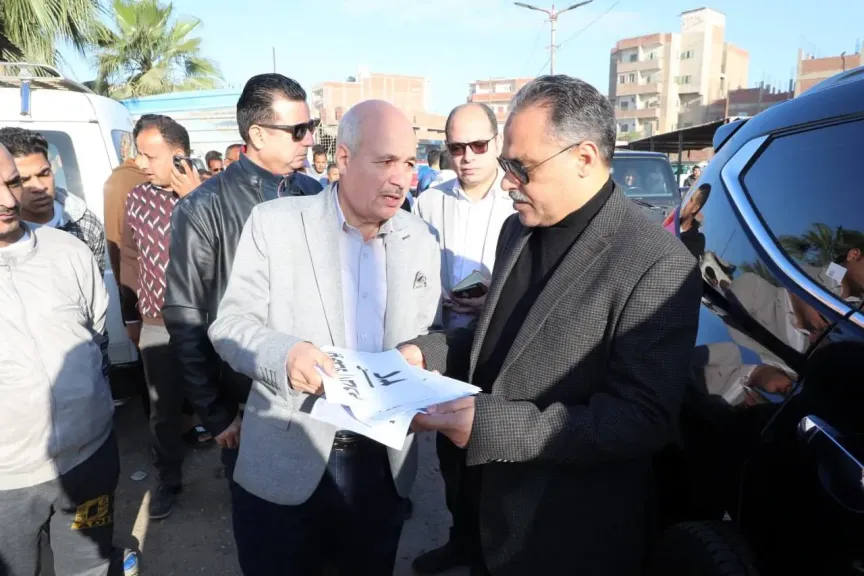What Are the Most Common Audi Problems in Dubai?

Why do Audi cars in Dubai break down more often than expected? The intense heat, dusty roads, and stop-and-go traffic put extra stress on engines, transmissions, and electrical systems. In summer, temperatures can reach 50°C, causing coolant leaks and overheating. Fine sand seeps into air filters, reducing performance and increasing fuel use. DSG gearboxes struggle in heavy traffic, leading to jerky shifts and costly repairs. Even the infotainment system can fail due to humidity. If your Audi has oil leaks, suspension issues, or warning lights, don’t ignore them—knowing these problems early can help you avoid expensive breakdowns.
Common Audi Problems in Dubai
Owning an Audi in Dubai comes with its share of challenges. The city's harsh climate, heavy traffic, and high-speed driving contribute to specific mechanical and electrical issues. Regular Audi Servicing Dubai helps, but certain Audi problems are more frequent due to local driving conditions. Below are the most common Audi issues in Dubai, along with their causes and solutions.
1. Engine Overheating
Dubai’s intense heat puts significant pressure on Audi engines, often leading to cooling system failures. Many drivers experience coolant leaks due to cracked hoses or faulty radiators, which can cause the temperature gauge to rise dangerously. The water pump is another critical component prone to failure, leading to improper coolant circulation. If overheating isn't addressed early, it can result in engine damage or even complete failure.
Common Signs:
-
Steam from the engine bay
-
Rising temperature gauge
-
Frequent low coolant warnings
Prevention Tips:
-
Regularly check coolant levels and inspect hoses for leaks
-
Ensure the radiator is free from dust and blockages
-
Replace the water pump and thermostat if worn out
2. Oil Leaks and Excessive Oil Consumption
Many Audi owners in Dubai report oil leaks, especially from the valve cover gasket and oil pan. The combination of high engine temperatures and aged seals leads to oil seepage, which can cause low oil levels and potential engine damage. Additionally, turbocharged models often consume more oil, requiring frequent top-ups.
Warning Signs:
-
Oil stains under the car after parking
-
A burning oil smell inside the cabin
-
Frequent low oil warnings on the dashboard
How to Prevent It:
-
Inspect gaskets and seals for wear
-
Use synthetic oil designed for high temperatures
-
Change engine oil at recommended intervals
3. DSG Transmission Failure
Dubai’s traffic congestion and extreme heat create DSG gearbox problems, especially in Audi models with dual-clutch transmissions. Common issues include rough shifting, delayed gear engagement, and transmission overheating. Over time, the mechatronic unit can fail, leading to expensive repairs.
Signs of Transmission Issues:
-
Jerky or hesitant shifting between gears
-
Transmission overheating warning light
-
Loss of power or acceleration lag
Prevention & Fixes:
-
Perform DSG transmission fluid changes regularly
-
Avoid aggressive acceleration in stop-and-go traffic
-
Get software updates for mechatronic recalibration
4. Suspension and Shock Absorber Wear
Dubai’s high-speed highways and frequent speed bumps put heavy strain on Audi suspension systems. Over time, shock absorbers, control arms, and bushings wear out, leading to an unstable ride and uneven tire wear.
Symptoms of Suspension Problems:
-
A bumpy or unstable ride
-
Noises from the suspension when driving over bumps
-
Uneven tire wear causing steering issues
How to Avoid Damage:
-
Inspect and replace shock absorbers when worn out
-
Regularly check for wheel alignment issues
-
Ensure control arms and bushings are in good condition
5. Turbocharger Issues and Carbon Buildup
Many high-performance Audi engines rely on turbochargers, but extreme driving conditions in Dubai contribute to turbo failures. Excessive heat weakens the turbo seals, leading to oil leaks and reduced boost pressure. Additionally, carbon buildup inside the intake system restricts airflow, reducing engine power and fuel efficiency.
Warning Signs:
-
Loss of acceleration and engine power
-
Whistling sounds from the turbo
-
Engine misfires due to carbon buildup
Preventive Measures:
-
Use high-quality fuel to minimize carbon deposits
-
Perform engine flushing to remove carbon buildup
-
Inspect and clean turbo components regularly
6. Electrical and MMI System Failures
Audi’s advanced electronics, including the MMI infotainment system, are prone to sensor malfunctions in Dubai’s humid conditions. Moisture buildup in the wiring harness can cause dashboard warning lights to appear randomly.
Common Issues:
-
MMI system freezes or restarts unexpectedly
-
Malfunctioning ABS, parking sensors, or keyless entry
-
Flickering or non-functional dashboard lights
How to Prevent It:
-
Regularly update MMI software
-
Keep electrical connections dry and corrosion-free
-
Get sensor diagnostics if warning lights appear
7. Battery Drain and Alternator Failure
Due to extreme heat, car batteries in Dubai degrade faster, leading to frequent battery replacements. The alternator also works harder to keep Audi’s high-tech features running, sometimes leading to charging failures.
Warning Signs of Battery Problems:
-
Difficulty starting the engine
-
Flickering or dim headlights
-
Battery warning light on the dashboard
How to Avoid Battery Failure:
-
Replace the battery every 2-3 years
-
Check the alternator output to ensure proper charging
-
Park in the shade to reduce heat exposure
How to Prevent These Common Audi Problems
Keeping an Audi in top condition requires proactive maintenance. By addressing minor issues early, owners can avoid costly repairs and extend their vehicle’s lifespan. Dubai’s hot climate, high-speed roads, and frequent traffic can put extra stress on engines, transmissions, and electrical components, making regular servicing essential. Here’s what every Audi driver in Dubai should do to prevent common problems:
-
Stick to Audi’s recommended service intervals – Regular maintenance helps detect and fix small issues before they turn into expensive repairs.
-
Use only genuine Audi parts for replacements – Fake or subpar parts can increase wear and tear, leading to frequent breakdowns.
-
Monitor coolant, oil, and transmission fluid levels – Low fluid levels can cause engine overheating, transmission failure, and premature wear.
-
Keep air filters clean to prevent dust buildup – Dubai’s dusty roads clog engine and cabin air filters, reducing performance and affecting fuel efficiency.
-
Avoid aggressive acceleration and sudden braking – Harsh driving habits put strain on the DSG transmission, turbocharger, and brake system, leading to faster wear.
-
Regularly inspect suspension and tires – High-speed driving and road conditions can cause shock absorbers, control arms, and tires to wear out quickly.
-
Get software updates for the MMI system and sensors – Infotainment glitches, sensor failures, and warning lights often result from outdated software.
-
Park in shaded areas to protect electronic components – Direct sunlight can damage infotainment screens, batteries, and plastic interiors, leading to cracks and malfunctions.
Dubai’s driving conditions make regular maintenance crucial. Whether it’s transmission issues, oil leaks, or electrical failures, addressing problems early will save time and money. For Professional Audi Repairs and Servicing in Dubai, always trust a certified Audi specialist to ensure top-quality maintenance and long-term performance.
How Often Should You Service Your Audi in Dubai?
Keeping your Audi in top condition requires regular servicing, especially in Dubai’s extreme heat, sandy environment, and heavy traffic conditions. Below is a recommended Audi maintenance schedule tailored for Dubai’s driving conditions.
1. Recommended Audi Service Intervals in Dubai
-
Minor Service (Every 10,000 km or 6 months) – Includes oil change with synthetic oil, oil filter replacement, air filter inspection, coolant level check, brake pad inspection, tire pressure check, and battery health test.
-
Major Service (Every 30,000 km or 12 months) – Covers everything in the minor service, plus transmission fluid change, spark plug replacement, brake fluid flush, suspension check, and fuel injector cleaning.
-
Comprehensive Service (Every 60,000 km or 24 months) – Includes all major service tasks, plus timing belt or chain inspection, turbo system check, cooling system flush, wheel alignment, and carbon cleaning for intake valves.
2. Additional Maintenance for Dubai’s Climate
-
Replace the air filter every 10,000 km – Dubai’s dusty environment clogs filters quickly, affecting engine efficiency and fuel economy.
-
Flush the coolant before summer – High temperatures make overheating a common issue, so regular coolant replacement is necessary.
-
Inspect brakes every 20,000 km – Stop-and-go traffic leads to faster brake pad wear, making frequent brake fluid checks essential.
-
Change the battery every 2-3 years – Extreme heat shortens battery life, so testing it regularly prevents unexpected failures.
-
Check the turbocharger regularly – High-speed driving and long highway distances put extra stress on turbocharged engines.
3. Why Frequent Audi Servicing is Essential in Dubai
-
Prevents overheating and engine failure – Ensures cooling system efficiency and prevents costly engine repairs.
-
Reduces transmission wear – Timely DSG transmission fluid changes help avoid jerky gear shifts and expensive gearbox replacements.
-
Maintains fuel efficiency – Regular air filter and fuel injector cleaning improve mileage and engine performance.
-
Extends turbocharger lifespan – Frequent oil changes with high-quality synthetic oil prevent turbo wear and boost performance.
-
Increases resale value – A well-maintained service history makes your Audi more valuable in the Dubai used car market.
By following this Audi service schedule, you can extend your car’s lifespan, improve performance, and prevent costly breakdowns in Dubai’s demanding driving conditions.
What Should You Check Before Going on Long Trips?
Before heading out on a long drive in the UAE, it’s important to make sure your Audi is in good condition. High speeds, hot weather, and long distances can put extra pressure on your car. Having Car Safety Inspection can help prevent breakdowns and keep your trip smooth.
-
Tire Pressure and Condition – Check that all tires, including the spare tire, have the right pressure and enough tread. Worn-out or underinflated tires can cause blowouts or poor grip on the road.
-
Oil and Coolant Levels – Make sure the engine oil and coolant are at the correct levels. Low oil can lead to engine damage, while low coolant can cause overheating.
-
Brakes – Test the brakes by pressing the pedal. If it feels soft, makes noise, or vibrates, get it checked. Brake fluid should also be topped up if needed.
-
Battery – A weak battery can stop working on long drives. If the battery is over two years old, get it tested before the trip.
-
Lights and Indicators – Ensure that headlights, brake lights, turn signals, and fog lights work properly, especially if driving at night.
-
Wipers and Washer Fluid – Dust and sand can reduce visibility. Check that the wipers work well and fill up the washer fluid.
-
Fuel and Emergency Kit – Always start a trip with a full tank. Carry extra supplies like water, snacks, a flashlight, and a phone charger in case of delays.
-
Spare Tire and Tools – Keep a spare tire, jack, and wrench in the car. These can save time if you get a flat tire on the road.
-
GPS and Roadside Assistance Contact – Ensure your navigation system is updated and keep a roadside assistance number handy for emergencies.
A quick check before your trip helps you avoid problems on the road and ensures a safe and stress-free drive. If you’re unsure about your Audi’s condition, visit a trusted service center in Dubai for a pre-trip inspection.

























